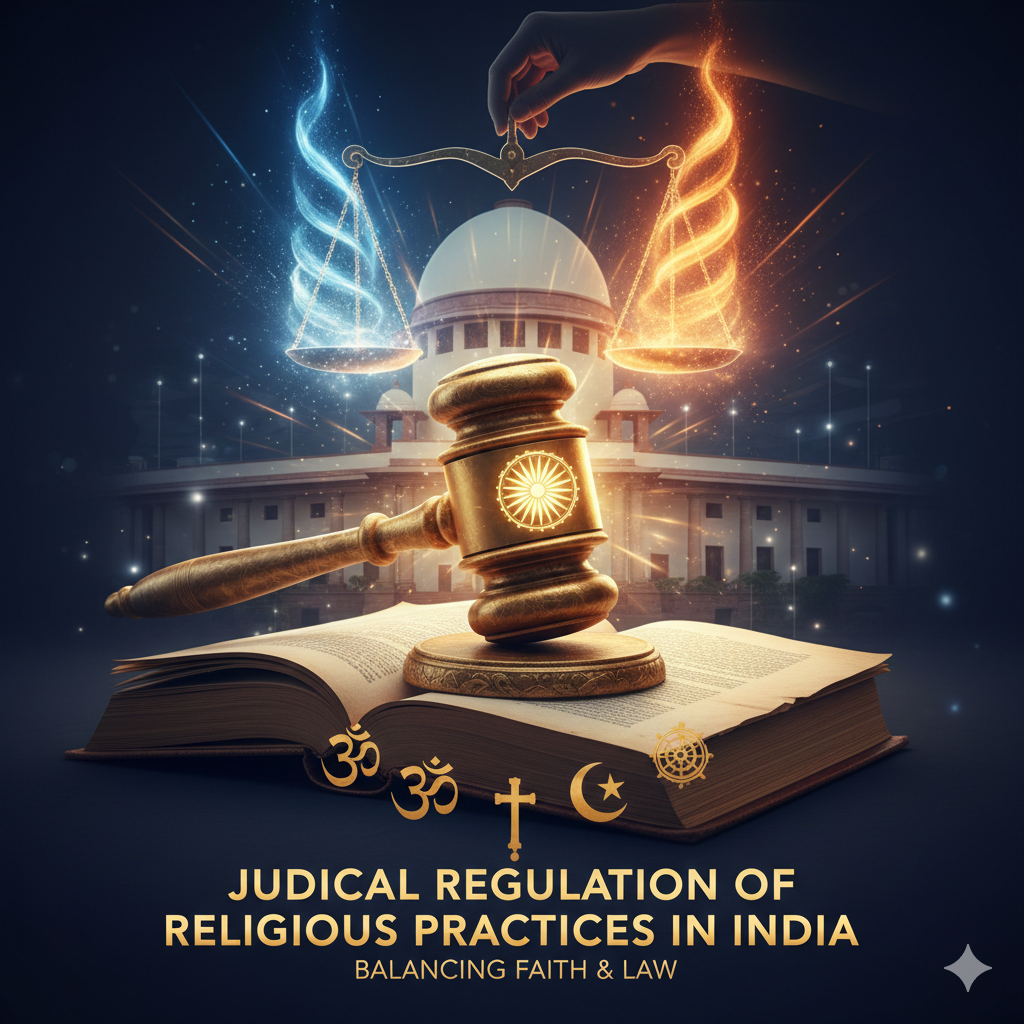Introduction
The Directive Principles of State Policy (DPSP) form an essential part of the Indian Constitution. They serve as guiding principles for the government to establish a welfare state that ensures social justice, economic equality, and political progress. Though not enforceable by courts, DPSPs play a crucial role in shaping laws, policies, and governance to ensure that every citizen enjoys equal opportunities and social upliftment.
This article explores the concept of DPSP, its significance, use in law-making, and its role in ensuring equality and progress in society.
What are Directive Principles of State Policy (DPSP)?
The Directive Principles of State Policy (DPSP) are provisions mentioned in Part IV (Articles 36-51) of the Indian Constitution. They are inspired by the Irish Constitution and aim to promote socio-economic democracy in India.
While Fundamental Rights (Part III) ensure individual liberty, DPSPs provide guidelines for the state to ensure collective welfare by bridging socio-economic inequalities.
Key Features of DPSP
- Not Justiciable – DPSPs cannot be enforced by courts, unlike Fundamental Rights.
- Moral Obligation – It is the duty of the government to implement DPSPs while making laws and policies.
- Aim for a Welfare State – They focus on eliminating poverty, promoting education, ensuring fair wages, and uplifting weaker sections.
- Guidelines for Policy-making – Parliament must consider DPSPs while framing new laws.
- Complementary to Fundamental Rights – DPSPs help achieve economic and social justice, which strengthens democratic values.
Classification of DPSP
DPSPs are categorized into three types based on their objectives:
1. Socialist Principles
These principles aim at reducing income disparity, ensuring social justice, and promoting economic welfare.
- Article 38 – The state must promote welfare of people by reducing inequalities in income and opportunities.
- Article 39 – Provides for equal pay for equal work, adequate livelihood, and fair distribution of resources.
- Article 39A – Ensures free legal aid for economically weaker sections.
- Article 41 – Right to work, education, and public assistance in cases of unemployment and old age.
- Article 42 – Provides for just and humane working conditions and maternity benefits.
- Article 43A – Encourages workers’ participation in industrial management.
2. Gandhian Principles
These principles reflect Mahatma Gandhi’s vision of self-sufficient villages, rural development, and social harmony.
- Article 40 – Promotes Panchayati Raj system (local self-governance).
- Article 43 – Ensures living wages and decent life for workers.
- Article 46 – Protects Scheduled Castes (SC), Scheduled Tribes (ST), and other weaker sections.
- Article 47 – Duty of the state to improve nutrition levels and public health, and prohibit the consumption of intoxicating drinks and drugs.
- Article 48 – Encourages scientific agriculture and animal husbandry.
3. Liberal-Intellectual Principles
These principles focus on human rights, international peace, and environmental protection.
- Article 44 – Establishes a Uniform Civil Code (UCC) for all citizens.
- Article 45 – Provides for early childhood care and education for children below 6 years.
- Article 48A – Protects and improves environment, forests, and wildlife.
- Article 49 – Protects monuments and places of historical importance.
- Article 50 – Ensures separation of judiciary from the executive.
- Article 51 – Promotes international peace and security.
Use of DPSP in Law-making and Governance
Though DPSPs are not legally enforceable, the Parliament and State Legislatures use them as a foundation for making laws and implementing government policies.
How DPSPs Influence Law-making?
- Guiding Policy Decisions – Laws related to education, environment, labor, and health are based on DPSPs.
- Judicial Interpretation – The Supreme Court and High Courts interpret laws in alignment with DPSPs.
- Welfare Laws – Laws such as Land Reforms, Right to Education, and the MGNREGA scheme are based on DPSPs.
- Economic Reforms – Policies on equal pay, fair taxation, and labor rights are influenced by DPSPs.
Major Laws and Policies Implemented as per DPSP
| DPSP Article | Law / Policy Implemented |
|---|---|
| Article 39(b) & (c) | Land Reforms (Abolition of Zamindari System) |
| Article 39A | Legal Services Authorities Act (Free Legal Aid) |
| Article 41 | Mahatma Gandhi National Rural Employment Guarantee Act (MGNREGA) |
| Article 42 | Maternity Benefit Act, Factories Act |
| Article 43 | Minimum Wages Act, Equal Remuneration Act |
| Article 45 | Right to Education Act (RTE) |
| Article 47 | Prohibition Laws on Alcohol (Gujarat, Bihar) |
| Article 48A | Environment Protection Act, Wildlife Protection Act |
| Article 50 | Separation of Judiciary (All-India Judicial Service Proposal) |
How DPSP Ensures Equality and Progress in Society?
DPSPs provide a framework for socio-economic justice, aiming to eliminate inequalities and uplift marginalized communities.
1. Ensuring Social Equality
- Reservation for SC/ST/OBC in jobs, education, and legislature (Article 46).
- Abolition of untouchability and caste discrimination through various laws.
- Legal aid and rights for women and weaker sections (Article 39A).
2. Promoting Economic Equality
- Equal pay for equal work for men and women (Article 39).
- Fair distribution of wealth and prevention of monopoly control (Land reforms).
- Welfare schemes for laborers, farmers, and unemployed citizens.
3. Advancing Political and Educational Progress
- Universal free and compulsory education (Article 45, RTE Act).
- Strengthening Panchayati Raj institutions for decentralized governance (Article 40).
- Encouraging workers’ participation in industry management (Article 43A).
4. Environmental Protection and Sustainable Development
- Protection of forests and wildlife (Article 48A).
- Pollution control and environmental conservation laws.
Conflict Between Fundamental Rights and DPSP
Since Fundamental Rights are enforceable and DPSPs are not, conflicts arise when a DPSP-based law restricts a Fundamental Right.
Key Supreme Court Cases
- Champakam Dorairajan Case (1951) – The SC ruled that Fundamental Rights prevail over DPSP if they conflict.
- Keshavananda Bharati Case (1973) – The SC held that Parliament can amend Fundamental Rights but must balance them with DPSPs.
- Minerva Mills Case (1980) – Stressed harmonization between Fundamental Rights and DPSPs.
Conclusion
The Directive Principles of State Policy (DPSP) are the backbone of social and economic justice in India. They guide the government in making laws that promote equality, social welfare, economic justice, and sustainable development.
Although not enforceable by courts, DPSPs have played a crucial role in shaping progressive legislation and welfare policies. Their implementation ensures a just, inclusive, and progressive society, fulfilling the constitutional goal of a welfare state.




